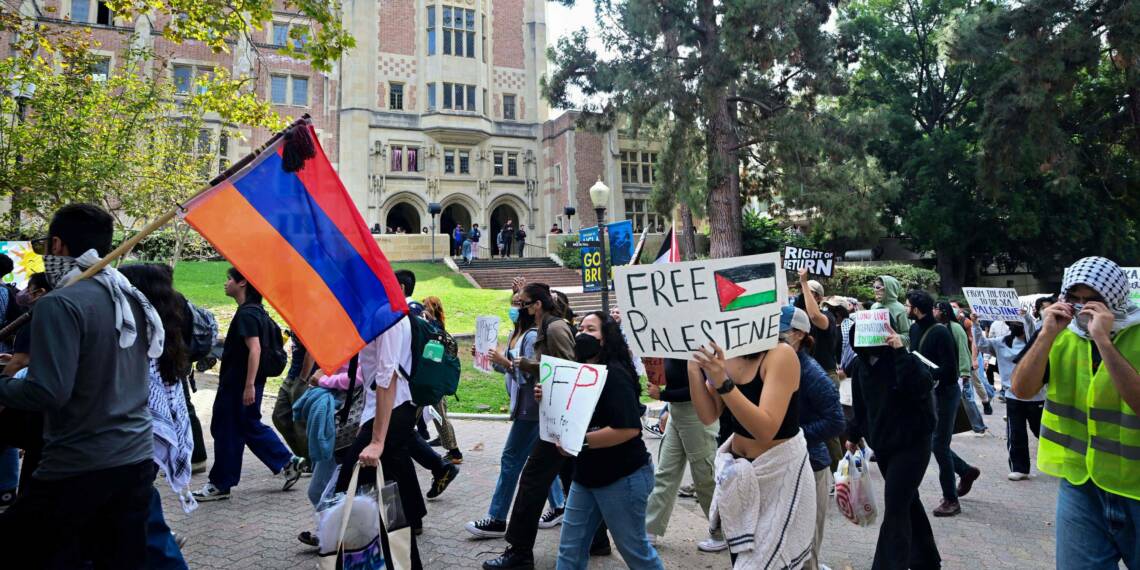The resurgence of anti-Israel protests on U.S. college campuses has highlighted a complex network of activism. These demonstrations, sparked by global political tensions and sustained by diverse actors and significant funding, pose serious questions about the intersection of free speech, university policy, and international solidarity movements.
The resurgence of anti-Israel protests on U.S. college campuses has drawn significant attention and raised questions about the motives and impacts of these demonstrations. Recently, Columbia University became a focal point when its administration arrested demonstrators, sparking further protests. This event underscored the contentious nature of campus activism related to the Israeli-Palestinian conflict. These protests often mirror tactics and the spirit of previous movements, such as the Black Lives Matter protests, suggesting a continuity of activism that transcends different causes. The demonstrations range from peaceful sit-ins and educational forums to more disruptive actions like walkouts and building occupations. This wide array of tactics highlights the protesters’ commitment to drawing attention to their cause but also leads to clashes with university authorities and debates over the limits of free speech on campus.
Actors Behind the Movement
At the heart of these protests are several key groups, with Students for Justice in Palestine (SJP) and Jewish Voice for Peace (JVP) being the most prominent. SJP has established over 200 chapters across the U.S. and Canada, advocating for Palestinian liberation and organizing boycotts against Israel. Their activities have increasingly put them at odds with college administrations, particularly in instances where protests have escalated or disrupted campus order. Jewish Voice for Peace, known for its progressive, anti-Zionist stance, represents a significant Jewish voice in solidarity with Palestinians. This group emphasizes justice, equality, and dignity for all people, aligning with broader social justice movements that advocate for marginalized communities worldwide. Furthermore, the movement is supported by coalitions of student groups, including newer entities like the MIT’s Coalition Against Apartheid and the University of Michigan’s Tahrir Coalition. These groups work collaboratively, showcasing a trend towards intersectionality in student activism, where different causes converge and support each other.
Funding Amount and Sources
Tracing the financial streams that support these protests reveals a complex network of funding sources, characterized by grassroots fundraising and contributions from well-known philanthropic organizations. The difficulty in mapping out these financial flows stems partly from the fact that many groups involved do not disclose their donations publicly, utilizing legal loopholes or operating under fiscal sponsors that shield their financial details. One notable fiscal sponsor is the Westchester Peace Action Committee Foundation (WESPAC), which has served as a financial backbone for SJP and other pro-Palestinian groups. WESPAC itself has been linked to significant funding from the Open Society Foundations, run by George Soros and his son Alex Soros. This connection has drawn scrutiny and criticism from those who view Soros’ involvement in various global causes with suspicion. In addition to WESPAC, direct financial contributions to groups like SJP and JVP have been sizable. The Sparkplug Foundation and the Cultures of Resistance Network are among the contributors that have channeled funds to these groups through various intermediaries to support their activities. The U.S. Campaign for Palestinian Rights (USCPR) has also been a significant recipient, with donations from the Rockefeller Brothers Fund and Soros’ Open Society Foundations totaling hundreds of thousands of dollars. Specifically, since 2018, the Open Society Foundations have provided USCPR with $700,000, and the Rockefeller Brothers Fund has contributed $515,000 since 2019. These funds are earmarked for campaigns and fellowships that involve community and campus organizing. Smaller but significant contributions also play a role. For example, the Sparkplug Foundation funneled $20,000 through WESPAC to support SJP in 2022. Additionally, JVP, in its 2021 federal tax returns, reported nearly $2.9 million in revenue, predominantly from individual contributions, with substantial support from Soros-linked groups totaling at least $650,000 since 2016. These financial figures illustrate the depth and breadth of funding that supports the anti-Israel protests on campuses, pointing to a robust network of donors that range from individual grassroots contributors to major philanthropic foundations. This funding is crucial in sustaining the ongoing activities and operations of these groups, reflecting both the financial and ideological investment in their causes.








